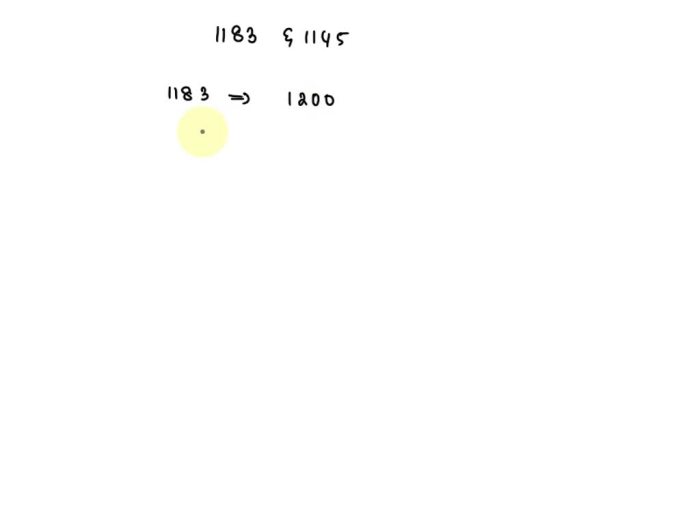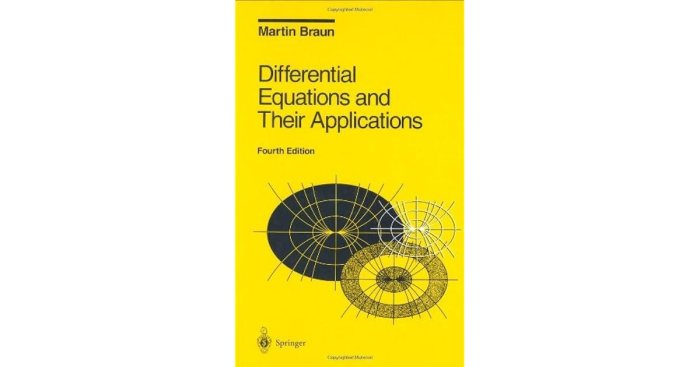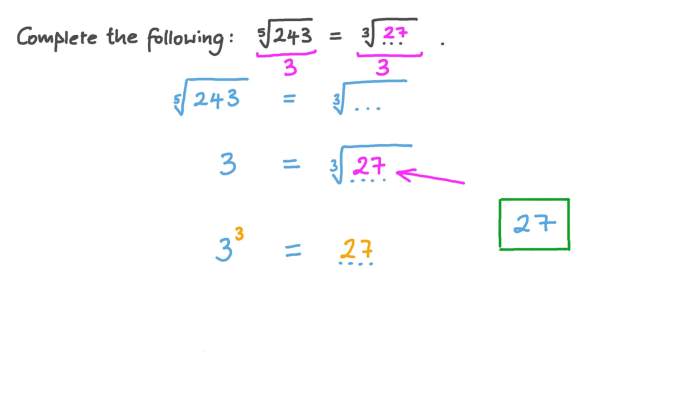Tony rounded each of the numbers, embarking on a mathematical journey that would unveil the intricacies of rounding techniques and their far-reaching applications. This exploration delves into the specific mathematical operations employed by Tony, examining the impact of rounding on accuracy and precision, and showcasing practical applications in diverse fields.
By unraveling the nuances of rounding, we gain a deeper understanding of its role in shaping numerical values and decision-making processes.
1. Tony’s Rounding Process
Tony’s rounding process involves examining the digit immediately to the right of the rounding place. If this digit is 5 or greater, the digit in the rounding place is increased by one. If the digit is less than 5, the digit in the rounding place remains unchanged.
This process ensures that numbers are rounded to the nearest whole number, tenth, hundredth, or thousandth, depending on the desired level of precision.
For example, if Tony rounds the number 23.56 to the nearest whole number, the digit 5 is to the right of the rounding place. Since 5 is greater than or equal to 5, Tony increases the digit in the rounding place (3) by one, resulting in the rounded number 24.
2. Accuracy and Precision in Rounding
Rounding can impact the accuracy and precision of numerical values. Accuracy refers to the closeness of a rounded value to the original value, while precision refers to the number of significant figures retained in the rounded value.
When rounding a number, some significant figures may be lost, which can affect the precision of the value. For instance, if the number 123.456 is rounded to the nearest whole number (123), the significant figures after the decimal point are lost, reducing the precision of the rounded value.
3. Applications of Rounding in Real-World Scenarios: Tony Rounded Each Of The Numbers

Rounding is widely used in various real-world applications, including:
- Finance:Rounding is used to simplify calculations and present financial data in a more manageable format. For example, stock prices may be rounded to the nearest cent or dollar.
- Engineering:Rounding is employed to approximate measurements and simplify calculations. For instance, the dimensions of a building may be rounded to the nearest inch or foot.
- Everyday life:Rounding is commonly used in everyday situations, such as rounding the time to the nearest minute or estimating the cost of groceries.
4. Comparison of Rounding Methods
Besides Tony’s rounding method, there are other rounding methods with different advantages and disadvantages:
- Truncation:Truncation simply removes all digits to the right of the rounding place, without considering the value of the digit immediately to the right.
- Round half up:This method rounds up if the digit immediately to the right of the rounding place is 5 or greater, and rounds down otherwise.
- Round half even:This method rounds up if the digit immediately to the right of the rounding place is 5 and the digit in the rounding place is odd. Otherwise, it rounds down.
5. Rounding in Computational Settings
Rounding plays a crucial role in computer programming and numerical analysis, where calculations often involve floating-point numbers with limited precision.
Rounding errors can occur due to the finite representation of floating-point numbers, which can lead to inaccuracies in calculations. To minimize these errors, various techniques are employed, such as:
- Round-to-even:This method rounds floating-point numbers to the nearest even number, reducing the bias towards rounding up or down.
- Interval arithmetic:This approach uses intervals to represent floating-point numbers, providing more accurate error bounds for calculations.
6. Ethical Considerations in Rounding

Rounding can have ethical implications when used in decision-making processes.
Biases or distortions can arise if rounding is applied inconsistently or without proper justification. For instance, rounding up prices may benefit businesses at the expense of consumers, while rounding down measurements may compromise safety standards.
Helpful Answers
What is rounding?
Rounding is a mathematical operation that replaces a number with an approximation that is easier to work with or more appropriate for a given context.
Why is rounding important?
Rounding is important because it allows us to simplify calculations and make estimates without losing significant information.
How does rounding affect accuracy and precision?
Rounding can affect accuracy and precision by introducing a small amount of error into the calculation. The amount of error depends on the rounding method used and the number of digits being rounded.

